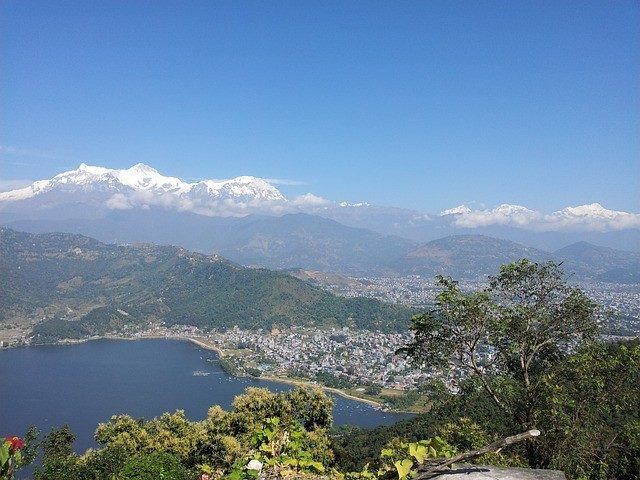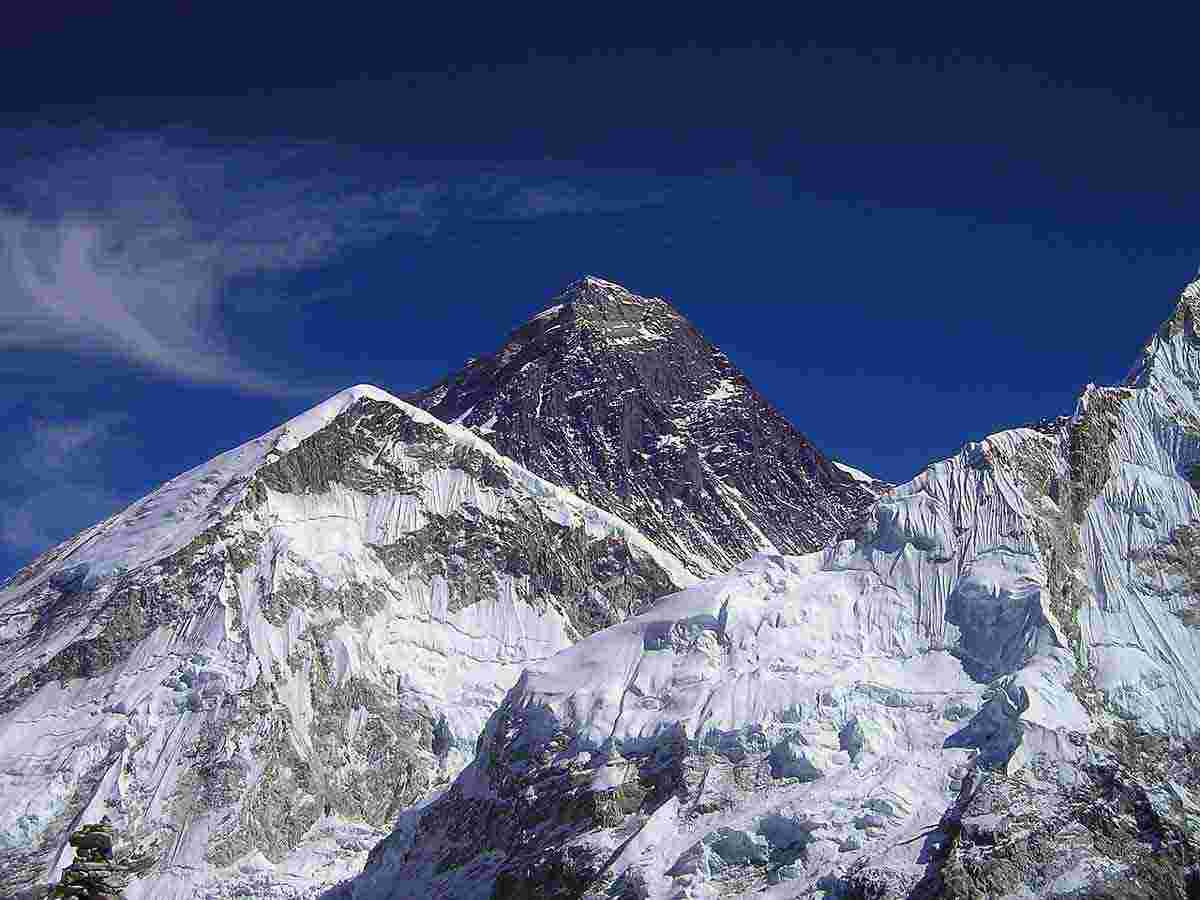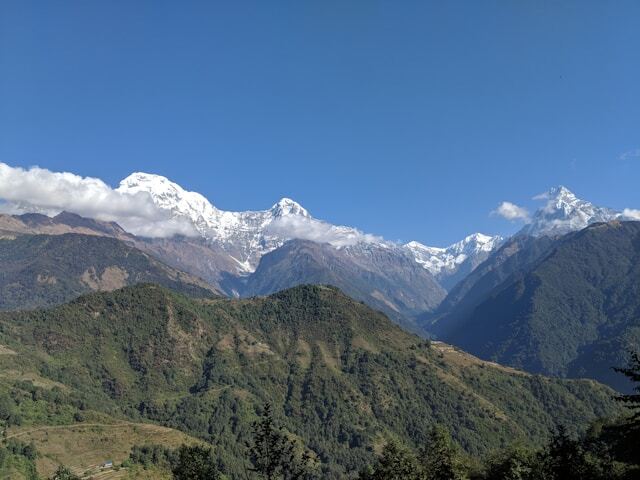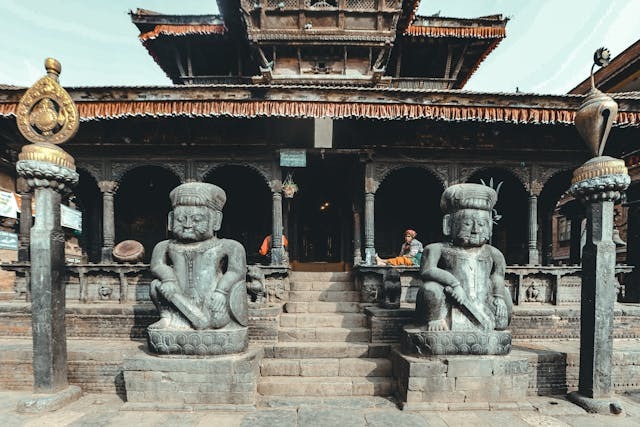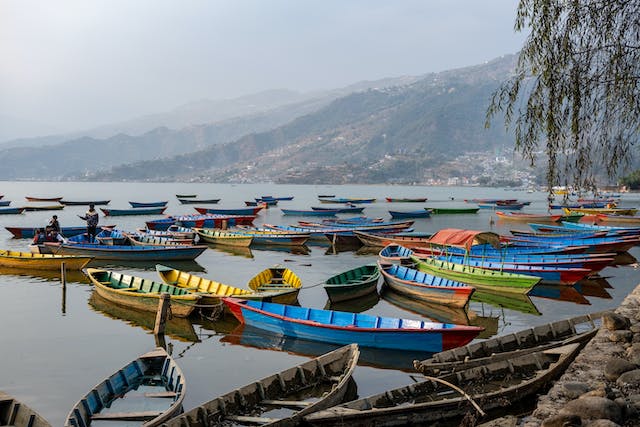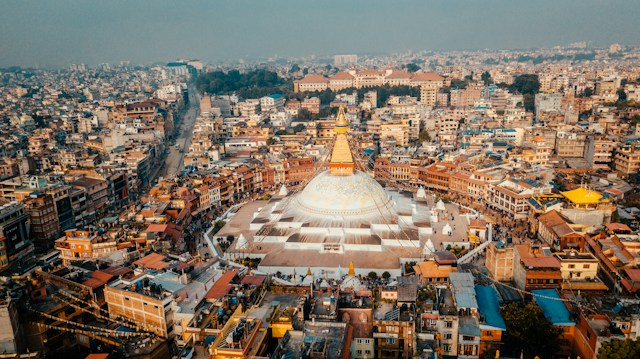How to prepare for climbing Mount Everest? Is climbing Mount Everest hard? Can you climb Mount Everest without experience? How to go on Everest? We have listed the top 10 tips for climbing Mount Everest.
There are many things you need to know before climbing Mount Everest. Also, there are few requirements to climb Mount Everest.
Standing on the top of the world and spectating the mesmerizing view of the snow capped mountains as far as your eyes can see, is the ultimate dream of every mountaineer.
Mount Everest, the highest mountain in the world, standing high at an altitude of 8848.86 meters from sea level, gives an unforgettable memory to every climber who reaches the summit.
Climbing any mountain is not easy. So, think how difficult it would be to climb the highest peak of the world. Many expeditions have been made to reach the top of Everest, for more than 70 years. Not all of them could see the world from the peak. Many climbers and Sherpas have lost their lives in the quest to conquer Everest.
Brief introduction about Everest
Mount Everest lies at the border between Nepal and Tibet (autonomous region of China). You can climb Mount Everest from two sides: Northside (Tibet) and the Southern side (Nepal).
What is the easiest way (route) to climb Everest?
Tenzing Norgay and Edmund Hilary were the first people ever to climb Everest, setting the example for generations to come. Or maybe it all depends upon the facilities and guides that you can get on different sides, which makes all the difference.
Nepal has always been known as a country of mountains and hills. People recognize Nepal from Mount Everest. Nepal is home to 8 of the world’s highest peaks that stand above 8000 meters making it the uppermost priority of every climber and even trekker.
Top 10 Tips for Climbing Mount Everest
According to many guides, surveys and mountaineers here are 10 things you must know before climbing Mount Everest.
1) How to reach Everest?
There are two base camps on Everest. One is in Nepal (south) and the other is in Tibet (north). You can climb Everest from any of the sides. However, keep in mind that it might be harder to get permission from China than from Nepal. With that being said let's dive deeper into the topic.
Nepal (south face) base camp resides 5.380 meters above sea level while Tibet (north face) base camp is at 5.180 meters above sea level. Climbing the summit is more direct and hence the steepest.
There is easy access to transportation to the base camp of the northern face, so you wouldn’t need to trek for weeks. However, you have to trek for 9- 14 days to reach the base camp of the southern face (Nepal). Among the top 10 tips for climbing Mount Everest, this is the basic tip you must be aware of.
In this article, we will talk about the route to reach the southern side (Nepal) as it is the most popular and falls under the bucket list of many trekkers and mountaineers.
a) Arrive at TIA, Kathmandu
Tribhuvan International Airport is the only international airport in Nepal as of May 2021. So there is no other option but to land in Kathmandu.
b) Flight to Lukla Airport
Now you have to take a flight to Lukla Airport also known as Tenzing Hillary Airport. Lukla airport is as dangerous as it is beautiful. It is one of the most dangerous airports in the world because of the location it is situated at.
It is surrounded by hills from all sides and the weather is unpredictable. In harsh weather, it can be a nightmare for any pilot or passenger.
But keep in mind, the occurrence of accidents is very low.
c) Trek for 10- 14 days
The trek to Everest Base Camp (EBC) is the number one trekking route in the world. After landing in Lukla, the only option you have to reach the base camp is to walk for the next 9 to 14 days.
Here we have listed the name of famous places and destinations to stay the night:
- Day 1 - from Lukla to Phakding
- Day 2 - arrive Namche Bazaar
- Day 3 - exploring Namche Bazaar (optional)
- Day 4 - arrive Tengboche
- Day 5 - arrive Pheriche
- Day 6 - arrive Duglha
- Day 7 - arrive Lobuche
- Day 8 -arrive Kala Patthar
- Day 9 - arrive at Everest Base Camp
Depending upon your package provided by the guiding company the destination and days may vary accordingly.
If you are a trek lover and want to explore more of the Sagarmatha National Park you can:
- Take a 6-day detour from Namche Bazaar to Gokyo Valley
- 16-day trek from Gokyo Valley to EBC (Everest Base Camp) via Cho Circuit
2) Starting point from Tibet
If you choose to climb from the northern face (Tibet), your journey will begin from Lhasa and when you reach the Lhasa Gonggar Airport (LXA), you will be accompanied by guides to take you to the hotel and you will reach the base camp with guides.
3) How long does it take to reach the summit of Mount Everest?
The average time to reach the summit from the base camp is about 6 to 9 days from both sides. However, If the weather doesn’t favor it, the expedition can last a few more days.
Now let me intrigue you with an interesting fact, shall I?
The fastest time recorded to reach the summit from base camp is under 10 hours, achieved by Nepalese mountaineer Pemba Dorje Sherpa and of course it had to be a Sherpa.
If you take into account the journey from Kathmandu, the total journey will last almost 60 days and from Lhasa to the summit, it is about 50 days. Among the Top 10 tips for climbing Mount Everest, this is the second thing you must be aware of.
4) Where to stay and sleep during the expedition?
From Southern Face
When you finally start the final expedition, the main goal is to reach the next base camp where Sherpas (main guides) will set up the specialized tents for you to sleep and stay warm.
Most of your luggage and items are carried by the Sherpas who will also guide you to the summit with their expertise and experience.
Almost every time the first to reach the next camping spot or camp will be Sherpas, who will also clear the path should any hindrance occur along the way.
Before reaching the base camps, climbers will find multiple hotels and lodges along the trekking route to rest at night
From Northern Face
Tibetan guides will set up the tents or climbers themselves can reach the next spot to camp for the night. The only way to stay warm is by setting up specialized tents made for expeditions.
5) How to identify and avoid the risks while climbing Everest?
If climbing a steep hill can be hard or impossible for some people, then imagine how hard it is to climb the highest mountain in the world. There are many factors that make the expedition challenging like harsh and unprecedented weather, avalanche, storms, glaciers, etc.
Months before the expedition, you should be focused and exercise daily to remain in shape. If you are a patient with a heart attack, blood pressure, you cannot take part in the expedition.
Diet is the main factor that will keep you in shape for the final push. Continuous training of rock climbing and small hikes is the most important strategy to make you a successful climber.
Nowadays not everyone can get permission to climb Everest. You should have a very good experience, at least climb a mountain above 6000 meters, and be in good health. Both Nepal and China governments have a very strict rule for climbers as a lot of amateurs lost their lives in the last 2 decades.
Now, another important question can arise, what is the dead zone on Mount Everest (Sagarmatha)? There are many dead zones on Mount Everest. Among the top 10 tips for climbing Mount Everest, this is the third important thing you must be aware of.
The main causes of death in Everest are frostbite, heart attack, falling, inexperience, and overconfidence. However, in recent years, the number of deaths is so low that you are more likely to die in a car accident than on Everest.
Following the guides and not pushing forward in bad weather is the best strategy you can use to save your life.
6) Can a beginner climb Mount Everest?
Let me tell you a fact. Jordan Romero climbed the highest peak at only 13 years of age and recently another 13 years old has successfully reached the summit. Now, how much experience do you think they had at 13 years of age?
It is not always about experience, of course, it is also good to have experience for such adventure but maturity and discipline always come first.
If you are not cocky and follow the rules, know very well about the risks and climate, then you can definitely get permission to climb. However, if you are unfit, have major health issues, and never climbed any mountains then it will be harder to get permission than climbing Everest for you.
7) Know about the weather and climate of Everest
The climate of Everest, especially at the summit, is a nightmare to any living thing. Even in the summer, the warmest temperature is below 0° C. The warmest temperature during July is -19 °C (-2 °F).
The coldest month of Mount Everest arrives in January during which the lowest temperature drops as low as −60 °C and an average temperature of only -36°C. Even during the sunny days of summer, storms can cover the mountains abruptly, anytime causing snowfall while you can rarely see the sun during winter.
At the summit of Everest, the wind can blow as fast as 160km per hour which is equivalent to 100 miles per hour. The extremely low temperature and falling of precipitation even in the summer results in a higher chance of frostbite to the climbers.
The climate of Mount Everest is infamous and is extremely hard to predict as a sunny day can swiftly turn into a snowy day. Even in such a climate some of the wild animals have adapted to survive and the Mount Everest region is the home to one of the rarest snow leopards – only 500 such species are left in Nepal.
8) List of all essential equipment you need to reach the summit of Mount Everest (Sagarmatha)
The list will be long and rightfully so, after all the main focus will be to stay alive. We have listed out the most essential equipment needed for every climber to climb Everest. The list of equipment is not limited to:
- Ice axes ( the most crucial)
- Water purification kit(very essential)
- Ski goggles,
- proper face mask with nose guard
- Crampons
- Carabiner system
- Alpine climbing harness
- Belay device
- Trekking poles
- Ascender
- Climbing helmet
- Sun hat, knit cap, and buff
- Headlamp
- sleeping bag suitable up to -40 °C
- foam pad and inflatable sleeping pad
- 50 to 55-liter backpack or 40-liter lite backpack
- Duffel bags (2)
- toiletries bag
- Sunscreen
- Running shoes,
- Waterproof high-altitude insulated boots for ice climbing and hiking.
- clothing appropriate for at least 60-day mountaineering trip that could see temperature ranging from 30 °C to -40 °C
Now the most important question can arise, what is the safest time to climb Mount Everest (Sagarmatha)?
The ideal time or season for an Everest expedition is from April to May which is also when you can find the longest traffic on Everest.
9) How many oxygen cylinders to carry for the Everest expedition?
Yes, it is unbelievable to know that many mountaineers have summited Everest without any supplementary oxygen. So, you might ask do we even need oxygen to climb Everest.
It is impossible even for climbers with multiple experiences to reach the summit without oxygen.
Only about 5% of the climbers successfully survived this adventurous risk while many lost their lives doing so.
So, it is very important to carry as many oxygen cylinders as prescribed by the guides and government authorities.
10) Can you climb Mount Everest for free?
Many people still think that climbers get money if they successfully reach the summit. But in reality, the situation is the exact opposite, the mountaineer has to pay thousands of dollars to the government of Nepal and China to climb Mount Everest.
Any guess how much the climbers pay every time they climb Everest?
Getting a permit alone from the Nepal government alone will cost you at least 11,000 dollars which is more than 12 lakhs Nepalese Rupees. Now after that you might have to spend extra 20,000 dollars on Guide Company, Sherpas, accommodation, and equipment.
It will cost you at least $8000 just to hire Sherpas to carry your goods.
So prepare to spend at least $30,000 if you are planning to reach the Everest summit.
Conclusion
Without determination, continuous effort, and struggle, it is almost impossible to get what we want. Not only in mountaineering but this is also applied in all other aspects of life. If you are disciplined, maintain a healthy life, and focused on your goal, climbing Mount Everest might not be as hard as you think.
